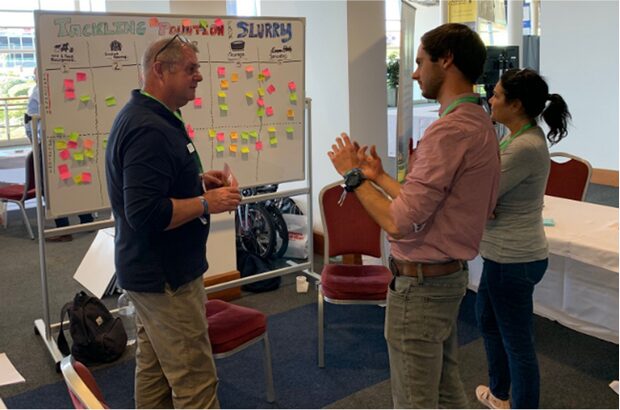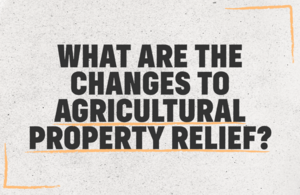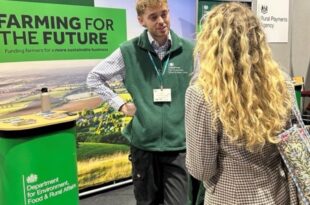
More than 4,000 people from across the farming community in England are now working with us to design, pilot, test and trial new farming policies and schemes.
In this post, we’ll explain how we’re working with the farming community. We'll also share the 7 co-design principles we’re encouraging groups to follow.
Our work in 2021
Last year’s work has given us a much better understanding of what people expect from us.
In September 2021, we published a blog post about what we learned when we undertook co-design at agricultural shows.
Since then, we have been working to address the feedback from the farming community on:
- The Animal Health and Welfare Pathway
- The Sustainable Farming Incentive
- The Farming Investment Fund
- The Lump Sum Exit Scheme
The feedback and lessons we've learned have not only helped us to shape policy, but 7 new co-design principles.
The principles, which we will share below, act as a standard for people to follow. They exist to show:
- our commitment to working in the open
- we listen and act on what people say is important to them
- taking part in co-design truly shapes our policies and schemes.
These principles will help us to make sure that co-design is applied consistently, whatever area we’re working on.
Our co-design principles
1.Understand the scope
Clearly set out the problem that needs to be addressed through a policy or scheme change. Agree with those participating in co-design what we can change, taking government commitments into account.
2. Have a wide view of the problem space
We need to work with everyone, not just in the farming community, to make sure we understand the impact of any policy changes across the whole system. For example: supermarkets, academics, and water companies.
3. Share power
People need to feel confident their voice is being heard. They need know they are helping to influence our policy and service design decisions.
4. Build trusting relationships
Take the time to engage with everyone involved in the process to build long-term relationships in which people feel valued.
5. Communicate clearly and effectively
Communicate with co-design participants in a clear, timely way and delivered in a format that works for participants. Updates should follow co-design sessions.
6.Make evidence-based decisions
Decisions should be taken after considering user needs, data, statistics, and people’s lived experience.
7. Continuously learn, invite and share feedback
Explain clearly and honestly what will happen and what won’t happen following co-design. To improve, we must continually encourage feedback.
Coming in 2022
As our new farming schemes gradually roll out, we will step up our work supporting new projects to incorporate co-design.
We will publish more posts to set out exactly how we have been applying the principles, what members can expect at the discussion groups, and what we are learning as a community through co-design.
Get involved in co-design
If you work in farming, why not get involved in informing and shaping future Defra policy? We hope to have more in-person events this year as restrictions ease. You can choose how much time you commit to the group, with most activities taking place online.
Sign up to take part in co-design. We’ll send email updates on the events taking place for your subjects of interest.





 The
The 
7 comments
Comment by Mark Maclay posted on
I look forward to more useful information from you.
Comment by John England posted on
Morning, its great that you want to listen to us farmers and long may it continue. A couple of my worries are , with the price of energy going through the roof and it does not same to have a limit. We can not control the price as a country, because we don't produce enough in this country. Please don't let this happen to food. If you do !! ,we could be facing the same problem with food in 10 years as we are with energy NOW. One other thing MOST farmers struggle to make profit. But they still do it because they love it and generations before them, but the next generations are slowly falling out of love with it.You can not blame them. Very low profit margins, silly amount of hours they have to work, putting up with the ever changing weather, etc. We are the cheapest council workers you will ever EMPLOY. What i mean by that is we look after the Whole countryside from Devon to the top of Scotland. please be careful for what you wish for.
Comment by Trevor Rix posted on
When will schemes for organic farmers be announced? At present none of the schemes are available or applicable to us.
Comment by The Team posted on
Hi Trevor,
Sorry for the delay.
We recognise the benefits that organic farming can offer to the wider environment. We are currently exploring how the Sustainable Farming Incentive can reward organic producers and those wishing to convert to organic systems in line with the payment principles we published in June 2021 – including considerations of whether to introduce a future organic standard, which provides an easily accessible, holistic package for organic farmers.
Our current plan is that all levels of the Sustainable Farming Incentive organic standard will be introduced in 2025. This is part of our indicative plan for the roll out of new standards. Precise timing may change, for example based on feedback from farmers and others.
Until then, organic farmers will be able to take part in the early rollout of the Sustainable Farming Incentive and are likely to be well placed to adopt the higher levels of ambition in the soils standards as well as other standards in development such as Integrated Pest Management due to the specific farming practices they undertake.
Organic producers can also join the Countryside Stewardship scheme in addition to a Sustainable Farming Incentive agreement. This is subject to the normal rules around not being paid for the same action twice, and not being paid to undertake incompatible actions on the same parcel of land.
We hope this helps.
Best wishes,
The Team
Comment by Tessa posted on
Hello,
Are you able to say who the stakeholders are that you are engaging with? Obviously not identifying them by name, but by organisation, job title/role (farmer, farming union representative, academic, RSPB, waterboard companies, etc). And how are these stakeholders involved? Do they all have the option to access the various different engagement methods and data?
I would be grateful to learn more about the co-design process and how it is being facilitated.
Many Thanks.
Comment by The Team posted on
Hi Tessa,
Thanks for getting in touch and for your interest in co-design.
If you’d like to learn more about our co-design approach, we would recommend this What we mean by ‘co-design’ blog post.
We are talking a variety of people including those on different farm types, regions, and policy areas within the Future Farming and Countryside Programme. We also welcome academics, industry representatives, and conservation charities involved through our user panel. We gather insight from our users to inform our approach to co-design.
If you’d like to read about co-design in action, you might want to check out these blog posts: how we’re developing slurry grants and how industry has come together to set out pathway to better pig health and welfare.
The Co-design Team
Comment by John Mortimer posted on
A good list of principles, and good to see efforts to develop co-design. The methods of co-design are a part of Systems thinking and Design thinking, so one avenue to follow could be to pull those out and include them in the development of designers and the methods of design that you use. Co-design can be an element of the methods that you follow, so they are not seen as an add-on.
And secondly, there is no need to re-invent the wheel. there are various experiences and practices that are already out there that you can use - perhaps from local government and the private sector, that you can pull out and use to learn from.